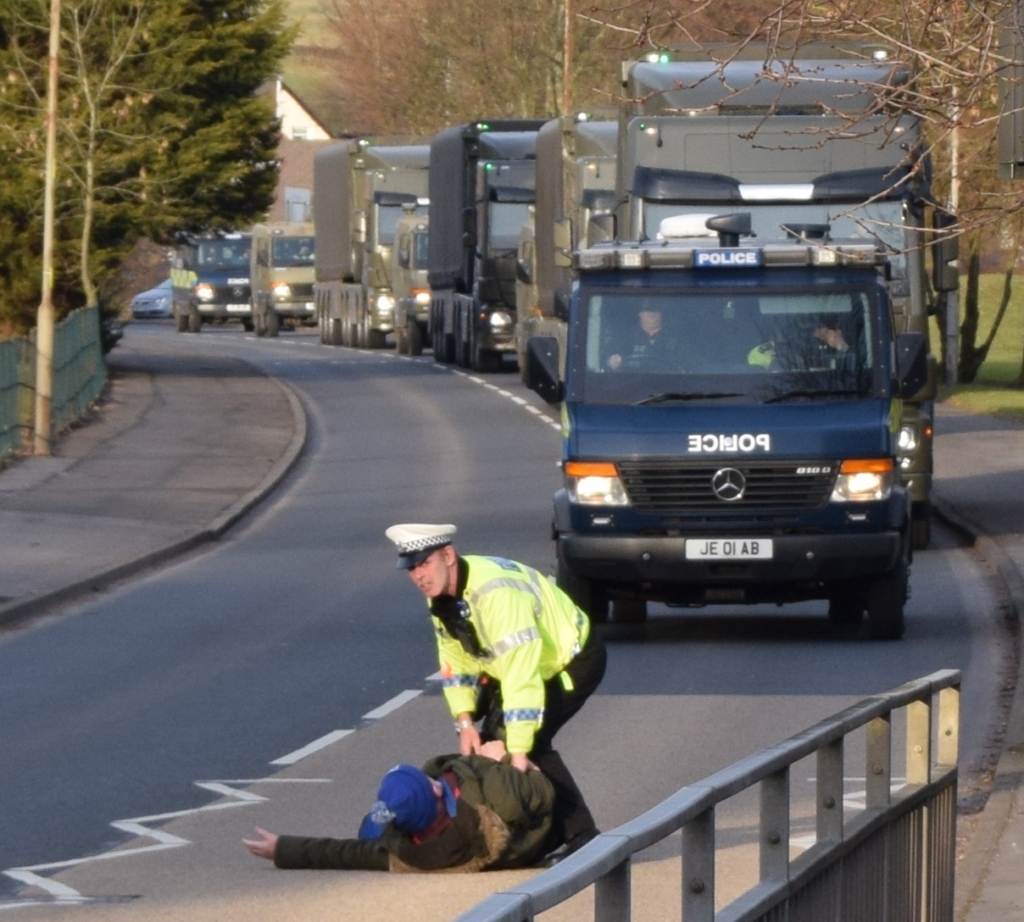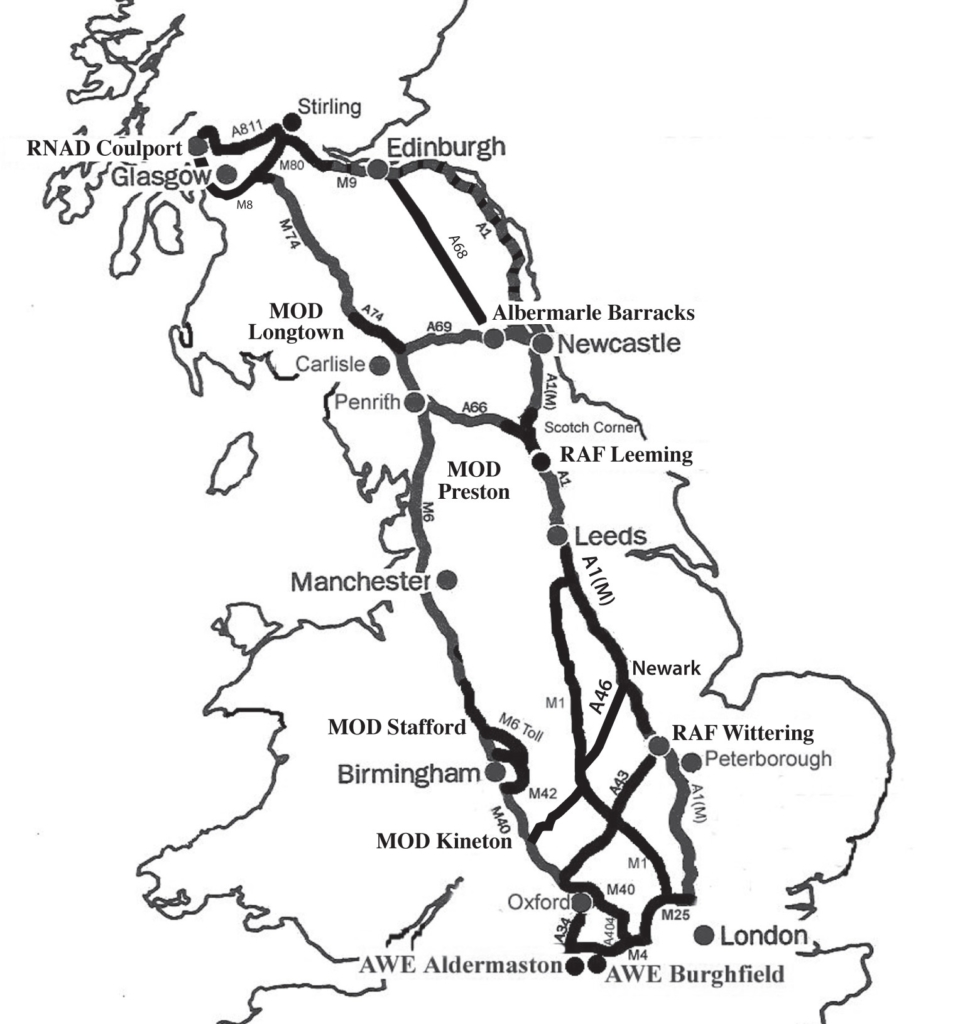Scottish Civil Authorities Failing to Assess Nuclear Weapon Convoy Risks


A critical issue is the question of risk assessment. The review makes the very basic error of only taking into account the likelihood of a serious incident. Competent risk assessment, as an absolute minimum, includes in its calculation the potential severity of impact of an incident. There is nothing particularly arcane about this – likelihood and potential impact are the factors we assess in daily decisions, whether it’s a decision to cross the road or store petrol in the tool-shed. In the case of the transport of nuclear weapons a release of radiation would be locally catastrophic. This means that carting nuclear warheads about the country is a risky business. In fact, though it does not feature in the review, the Ministry of Defence acknowledges this, but claims that the risks are acceptable in order to maintain the UK’s nuclear weapon system.


There is, however, a rational approach to risk assessing the nuclear weapon transport that would not involve a great deal of effort. This would be too say that if a serious accident leading to a release of radiation took place, say, on the M74/M8 junction at Tradeston in Glasgow on a Friday afternoon at 4 p.m., we, the civil emergency services, would be unable to cope, we would be out of our depth. That would demand not only courage but humility – an awkward virtue for an agency or a government that perceives its future to depend on a reputation for all-round competence. There is however a helpful precedent.
In 2011 the International Committee of the Red Cross and Red Crescent said:
“(it) emphasizes the incalculable human suffering that can be expected to result from any use of nuclear weapons, the lack of any adequate humanitarian response capacity and the absolute imperative to prevent such use”.
That statement has done its reputation no harm whatsoever. In fact, its honest and authoritative declaration galvanised nations to back the adoption by the UN in 2017 of the Treaty on the Prohibition of Nuclear Weapons. A similar statement by the Scottish authorities on the threat posed by the nuclear convoys would have far-reaching positive effects.

In all the years that I’ve opposed wmd’s, I have never heard of any discussion, within the peaceMovement, of the contemporary primary reason for the ‘uk’ maintaining and further developing its wmd’s – namely the uk’s permanentSeat on the United Nations Security Council
.
This power is worth hundreds of billions of £s per year, and no Chancellor would seriously see the seat given up, let alone a primeMinister losing the political power it affords
Once again the UK government has cloth ears when it comes to Scotland. Have you seen the pic of those nuclear vehicles stopped outside a primary school while our weans played in the playground right next to them. Would the English stand for that? Would they hell!It was quoted that the wmd were put there because there was no area of deep water far enough away from a large population in England…ever heard of Glasgow?…jist doon the road.Independence can’t come quick enough…then we can kick out our ‘precious’ UK government and their wmd.How about put them in the Thames….
Nukewatch who campaigns against nuclear warhead transport (as part of the wider anti-nuclear movement) is a UK wide organisation. These convoys come from AWE Burghfield near Reading and pass through lots of communities and near to schools south of the border too. Our friends there don’t stand for it either but like those of us campaigning in Scotland have been seeking an end to them for decades and are still at it. Scottish independence is one way to disarm the UK (as there is nowhere to practically base nuclear armed submarines in England). I know “put them on the Thames” is a handy slogan but we don’t want them anywhere. We are part of an international movement pushing all the nuclear states to disarm and never suggest anyone (including a rUK – as a new political entity) should have them.
Do you have this picture of the bombs outside the school? If so can I see it
Presumably if a weapon was stolen en route, the potential for threat and extortion (whether any blackmailer had access to the nukes or not) could be bankrupting for the state. What does the UK government plan to do in the case of such an emergency? What value does it place on one of its own cities?